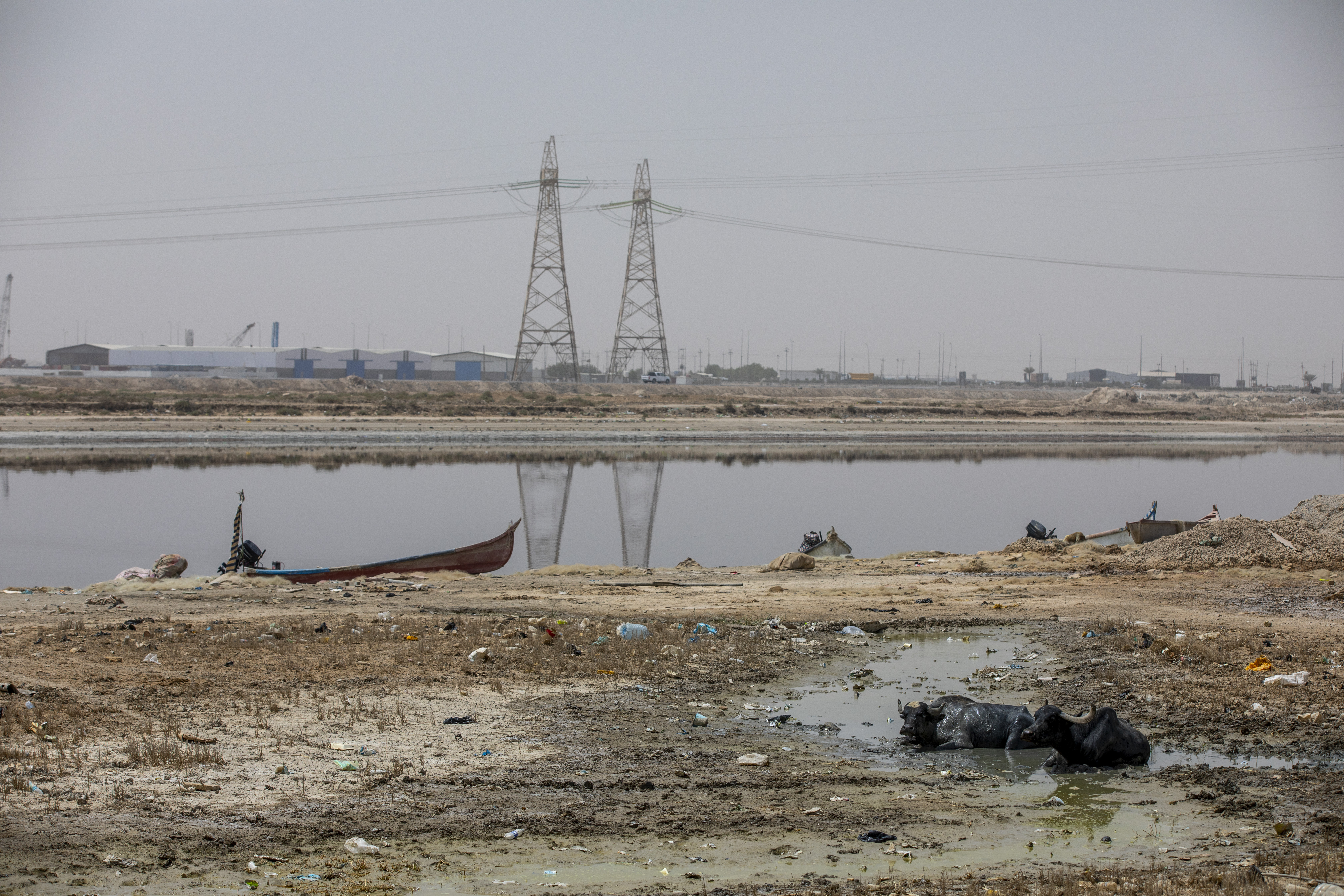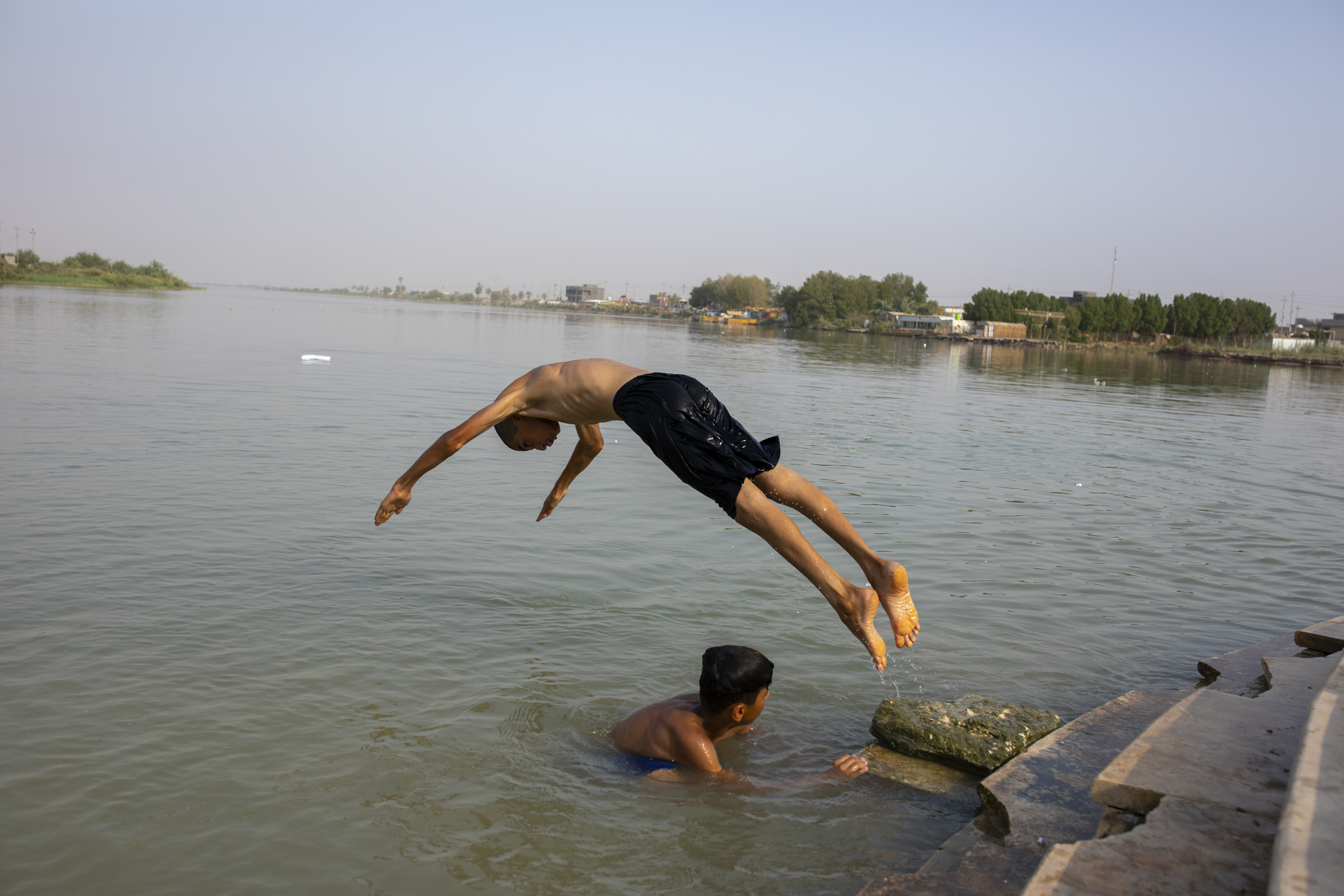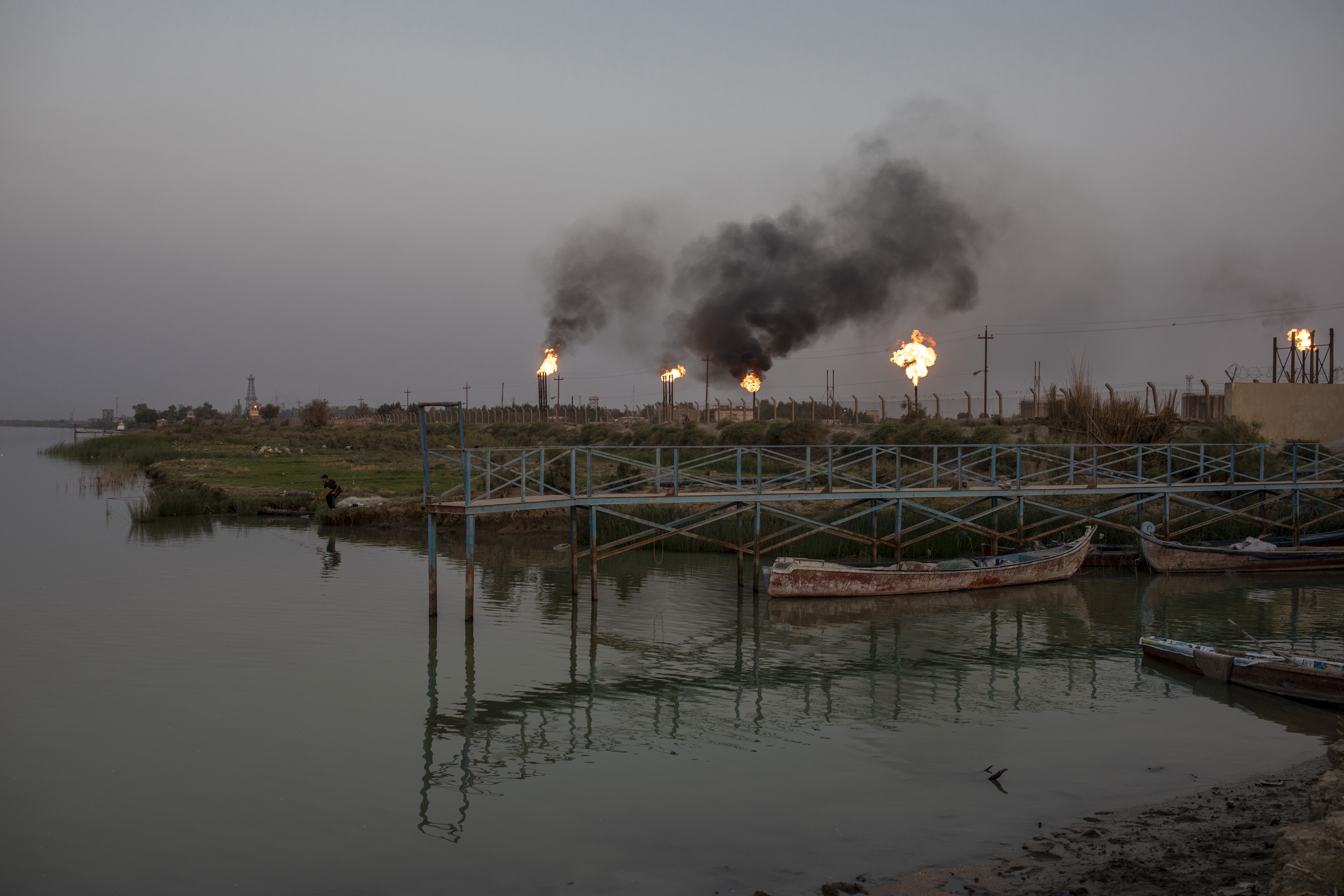Climate change is significantly damaging Iraq’s environment, economy, and society. Considered the world’s fifth-most vulnerable country to climate change, Iraq is prone to violent climatic phenomena such as extreme and sustained high temperatures, drought, and frequent sand and dust storms and floods. The increasing prevalence of such phenomena, alongside desertification and salinization, have undermined Iraq’s agricultural sector, which has been in decline for some time. Climate change in Iraq is not only hurting the agricultural sector but is threatening fundamental human rights, creating barriers to economic growth, and undermining social stability. Iraq’s environmental and energy challenges directly affect its overall stability.
Iraq’s climate is mainly characterized as continental and subtropical semi-arid, except for the mountainous Kurdistan Region of Iraq (KRI) in the north, which has a Mediterranean climate. As such, around 92% of Iraqi land is threatened by desertification, with temperatures increasing seven times faster than the global average.
Climate change-driven water scarcity is the country’s foremost environmental concern, with the Water Stress Index predicting that Iraq will experience severe drought, extreme heat, and a toxic environment by 2040. Rising temperatures, drought, and declining precipitation have resulted in a 20% decline in the country’s water supplies, which in turn has reduced real GDP by up to 4% (roughly $6.6 billion) and placed stress on the country's fragile water management systems. The agricultural sector is the country’s largest water consumer and has experienced declining crop yields and reduced productivity as a result. Climate change has, moreover, led to poorer water quality, greater soil salinity, and higher levels of air pollution, further exacerbating the country’s environmental challenges.

Water scarcity and rising temperatures are likely to trigger to population migration, with people forced to relocate in order to survive. In 2021 alone, approximately 20,000 people were displaced due to water scarcity, a phenomenon that potentially threatens over 7 million Iraqis. Water scarcity is also likely to lead to conflicts over water resources, exacerbating existing tensions and creating new ones.
Despite its mountainous climate, rising temperatures and water scarcity are also forecast to severely impact the KRI. The region increasingly suffers from floods in winter and water scarcity in summer, with groundwater levels falling precipitously. Appropriately, climate change is listed as a top threat to the KRI and to Iraq in general, with resource scarcity and migration representing critical challenges.
Meanwhile, climate change forecasts indicate that Iraq will endure more extensive dry periods that result in the rapid depletion of groundwater. The air temperature in Kurdistan is typically high, but the years 2021-2023 were the warmest on record, with temperatures topping 44°C, a level that has not been recorded in the last 100 years. These scorching temperatures have caused crop failures that have reduced the output of wheat and other cereal crops by over 50%.

Mitigation measures
Sustainable agricultural policy in the KRI and Iraq requires a comprehensive approach that holistically addresses the challenges facing the entire region. Some possible measures include strengthening water management and governance systems, promoting renewable energy solutions, improving the management of strategic resources, and supporting businesses to develop climate-smart innovations. Other measures include adopting a national strategy for adaptation and mitigation, encouraging closer citizen involvement in water management, and preventing the overexploitation of aquifers through excessive pumping. Additionally, policies can be formulated to protect domestic products against competition from imports from neighboring countries.
Several government agencies and international partners are implementing projects to reverse the deleterious effects of climate change. The Ministry of Agriculture and Water Resources (MoAWR) is responsible for developing government policy on food security and supporting investment in agriculture as a key sector of the economy. There are several examples of successful sustainable agriculture in the KRI and Iraq. The International Fund for Agricultural Development has invested in upgrading irrigation infrastructure, improving food security and nutrition, and reducing poverty by increasing farm and off-farm incomes, while the Food and Agriculture Organization (FAO) and its partners continue to boost agricultural livelihoods in Nineveh, with a focus on inclusive development of the value chains of key agricultural commodities. The FAO has also implemented a wheat improvement package jointly with the MoAWR and the EU that has improved productivity and may promote further food security. Meanwhile, the International Trade Centre has developed sustainable development strategies to transform Iraq's tomato and poultry sectors, which aim to contribute to national development goals of food security, inclusive growth, and job creation, particularly for women and youth.

Additionally, some private firms in the KRI are accelerating their production of agricultural equipment, and the promotion of renewable energy in Iraq and the KRI is driving the development of services producing renewable energy technologies. Finally, the KRI has implemented hydroponic agriculture, with one example being Al-Hayane Farm, which utilizes hydroponic technology and aquaponics to significantly reduce water usage and promote sustainable agriculture.
Crops like strawberries can be grown in hydroponic facilities that minimize water waste. Photo source: UNDP.
The United States Agency for International Development is also working with the Government of Iraq, the private sector, and affected communities to mitigate the impact of climate change by strengthening water management and governance systems, promoting renewable energy solutions, improving management of strategic resources, and supporting businesses developing climate-smart innovations. The Kurdistan Regional Government has also recognized the need to address climate change and resource scarcity and the migration it could trigger as critical challenges.
Dr. Kamal Kolo, based in Erbil, serves as a distinguished professor specializing in Petroleum and Biogeosciences at Soran University. Alongside his noteworthy scientific endeavors, he has contributed to the literary world with several authored and co-authored books.

